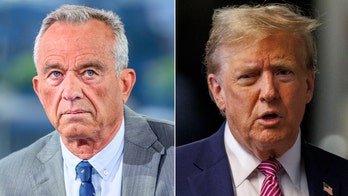The Supreme Court's decision on presidential immunity, while acknowledging that the president is not above the law, has raised concerns among liberal justices who foresee alarming scenarios where the president's actions may go unpunished.
The Supreme Court's ruling on presidential immunity, a topic of significant debate, has sparked heated dissent from liberal justices who fear the ruling has created a loophole for presidents to evade accountability for certain actions.
On Monday, the high court ruled 6-3 that a president has substantial immunity for official acts that occurred during their time in office. While the majority opinion explicitly stated that the president is not above the law, it sent the case back to lower courts to determine if the acts at the center of the case were "official."

Supreme Court Ruling on Presidential Immunity: A Chilling Precedent
This ruling has raised concerns among liberal justices, who argue that it could lead to a slew of alarming scenarios where the president's actions may go unpunished. In their dissents, Justices Sonia Sotomayor, Ketanji Brown Jackson, and Elana Kagan expressed grave worries about the potential consequences of this decision.
Justice Sotomayor wrote, "The President of the United States is the most powerful person in the country, and possibly the world. When he uses his official powers in any way, under the majority’s reasoning, he now will be insulated from criminal prosecution."

Supreme Court Ruling on Presidential Immunity: A Chilling Precedent
She provided several chilling examples, such as the president ordering the assassination of a political rival or taking bribes in exchange for pardons, all while being immune from prosecution. Sotomayor concluded, "With fear for our democracy, I dissent."
Justice Jackson echoed Sotomayor's concerns, noting that while the president has the authority to remove cabinet members, it is unclear whether they can do so by "poisoning him to death." She questioned whether the president's removal power extends to circumventing a generally applicable criminal law prohibiting murder.

Supreme Court Ruling on Presidential Immunity: A Chilling Precedent
In the majority opinion, Chief Justice John Roberts dismissed the dissents as "fear mongering on the basis of extreme hypotheticals." He argued that the dissents ignored the Constitution's separation of powers and precedent.
However, Justice Sotomayor's dissent has resonated widely on social media, with notable figures such as former Secretary of State Hillary Clinton expressing agreement. Clinton tweeted, "It will be up to the American people this November to hold Donald Trump accountable."

Supreme Court Ruling on Presidential Immunity: A Chilling Precedent
The Supreme Court's ruling on presidential immunity has ignited a heated debate about the limits of executive power and the accountability of the president. While the majority opinion maintains that the president is not above the law, the dissents raise valid concerns about the potential for abuse and the chilling effect this ruling may have on the enforcement of criminal laws against the president.










